Red Wine Vinegar, Shallot, and Garlic Reduction Sauce for Steaks
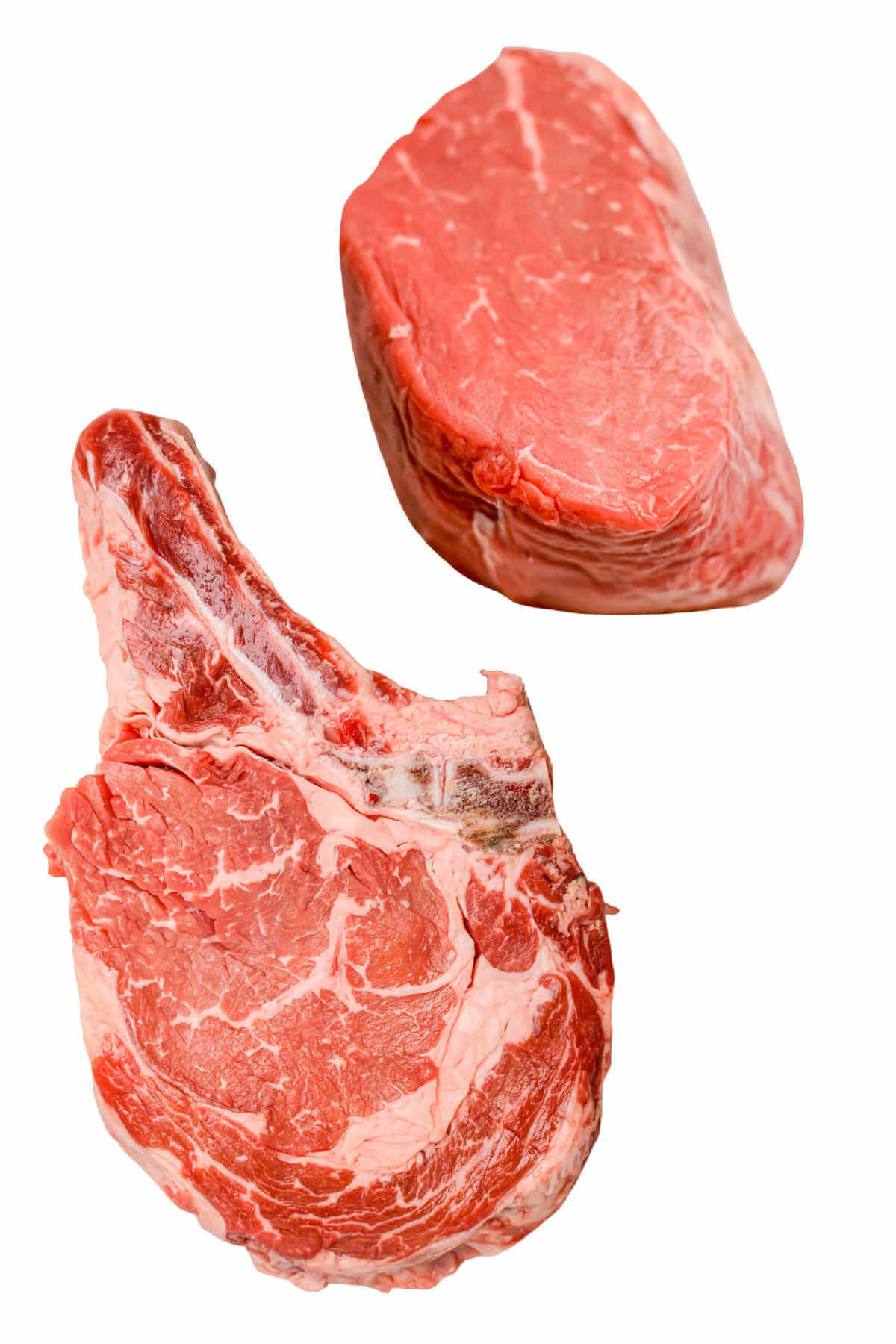
Filet Mignon vs Ribeye What's the Difference? Kitchen Laughter
Technically, the Filet Mignon is a leaner cut of meat resulting in healthier meat with less fat, less cholesterol, and fewer calories. Ribeye has a higher fat content, more cholesterol and more calories per pound. Both of these beef cuts are excellent sources of protein, iron, and other vitamins and minerals.

Sides for Steak Best Side Dishes for Steak Kitchn
Classic Ribeye Steak: The ribeye steak is a true crowd-pleaser and a staple on many menus. Its marbling and rich flavor make it a favorite among steak enthusiasts. Filet Mignon with Red Wine Reduction: A red wine reduction sauce is a top choice for an elegant and sophisticated dish. Pour the sauce over the tender filet mignon and serve it with.
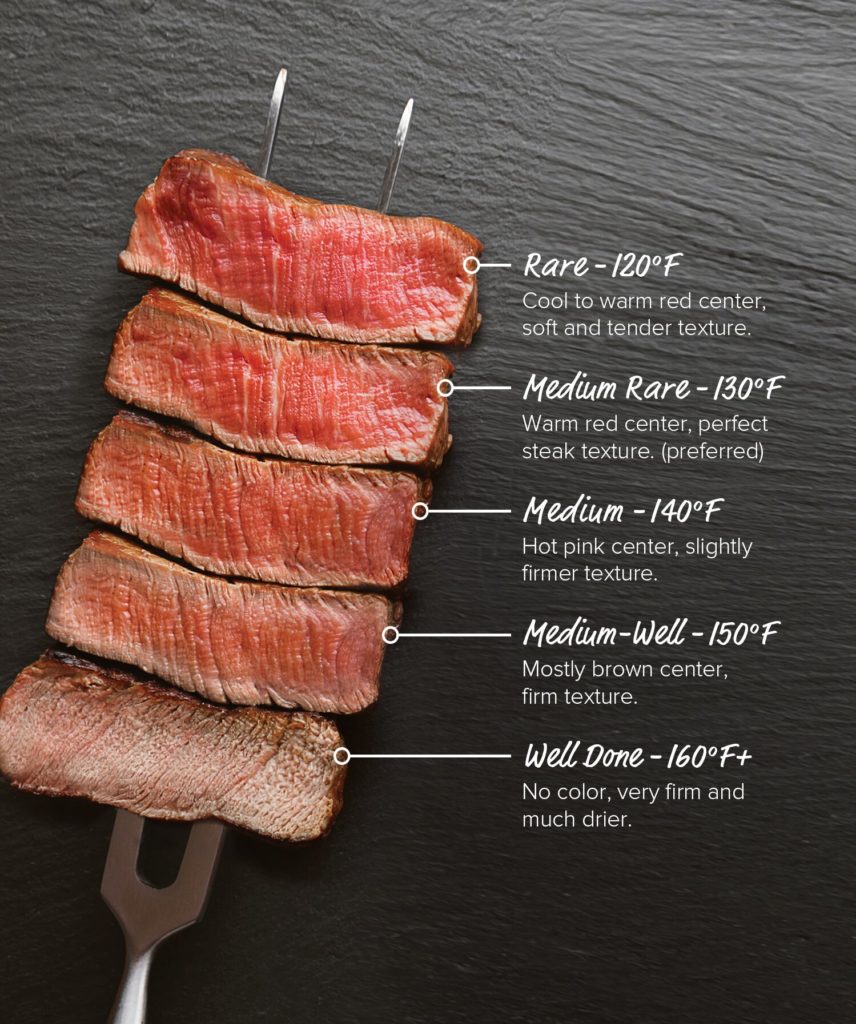
All About the Steaks ultimate guide to everything
Going this route is a win-win as you get the most out of both meals in calories and taste! Nutrition Facts Per Serving (4 oz) Filet Mignon: 255 calories, 11 g fat, 3 g saturated fat, 34 g protein, 0 g carbohydrates. Ribeye Steak: 541 calories, 37 g fat, 14 g saturated fat, 42g protein, 0 g carbohydrates. Source: USDA.
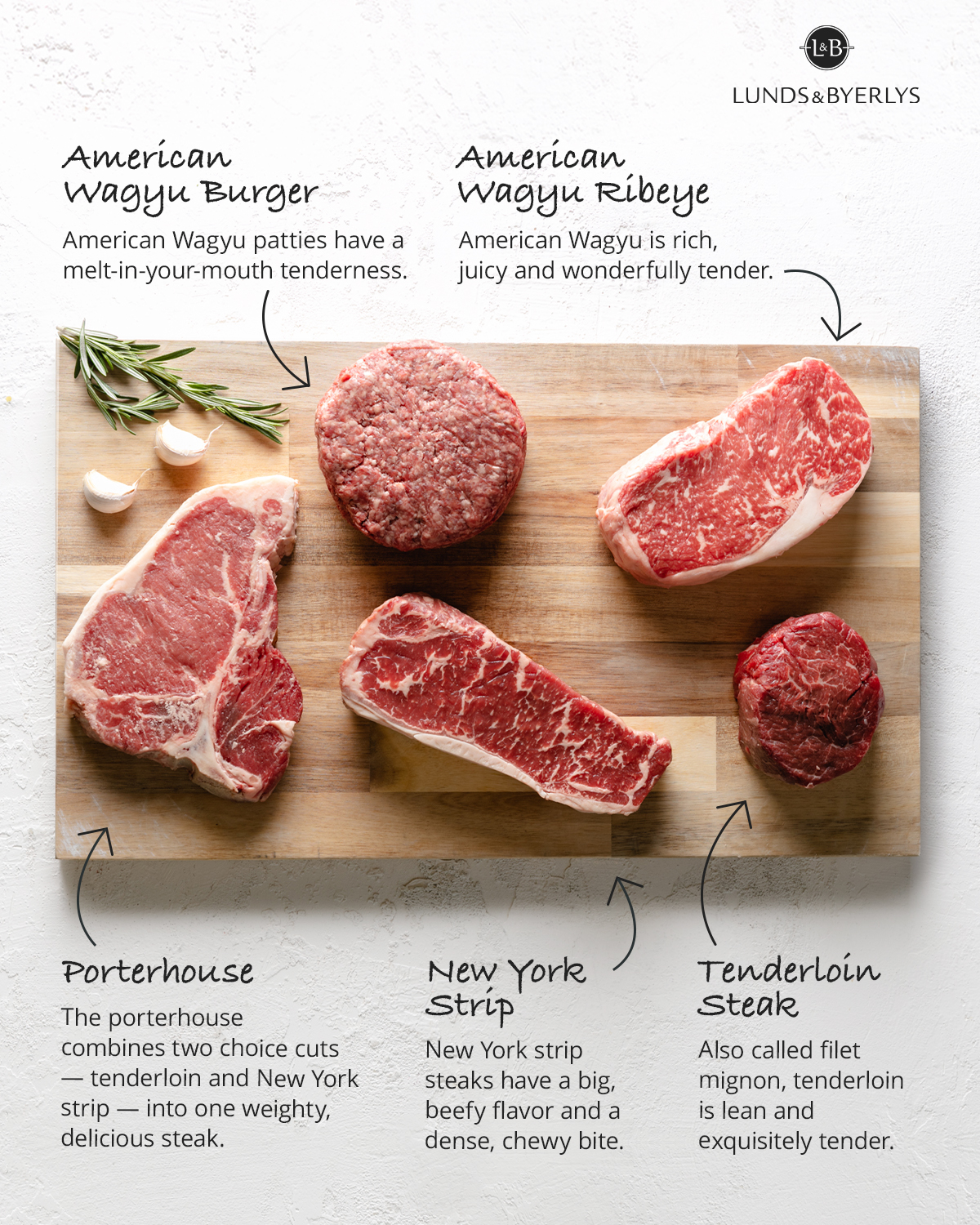
L&B Guide to Beef Lunds & Byerlys
Filet mignon has similar sodium levels to ribeye, but the former has higher cholesterol and less fat levels than the latter. Filet mignon also has 280 milligrams of potassium, is a great protein.

Filet Mignon vs Ribeye — Which is Best, and Why?
Unlike the filet mignon, ribeye is much larger in size and contains a higher fat content. Ribeye steaks are cut from a roast nestled under the rib cage; this lesser-used muscle is generously.
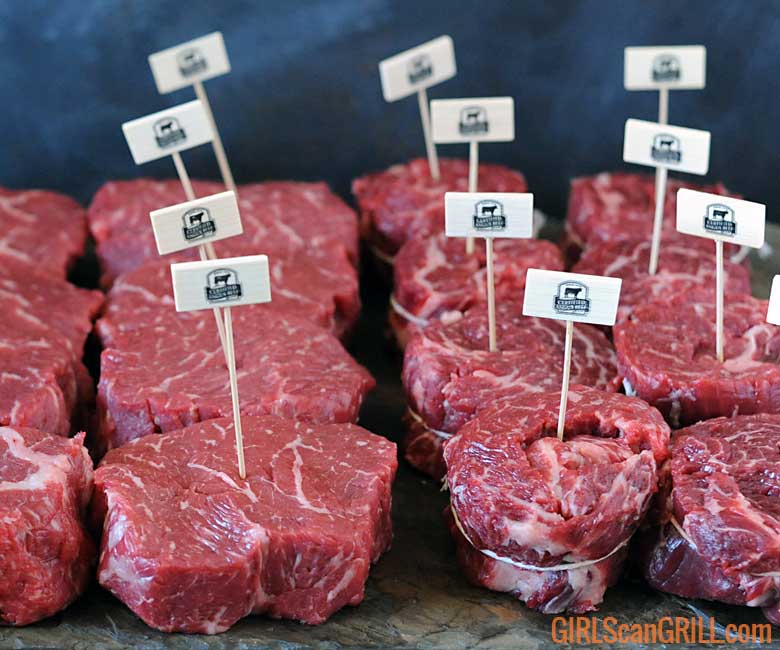
How to Trim a Prime Rib to Make Ribeye Cap and Ribeye Filet Steaks
Regardless of your choice, filet mignon and ribeye steak offer the perfect combination of flavor, texture, and quality. Whether indulging in a special occasion or having an everyday meal, these two cuts will not disappoint. 4.7/5 - (4 votes) Please follow and like us:

beef tenderloin steak vs filet mignon
Ribeye Steak on the left and Filet Mignon on the right. On the other hand, the ribeye consists of up to 3-4 different muscles. The primary muscles in a ribeye are the longissimus dorsi and spinalis dorsi, which rank among the most flavorful in the cow. Smaller muscles in this cut include the complexus and longissimus costarum.
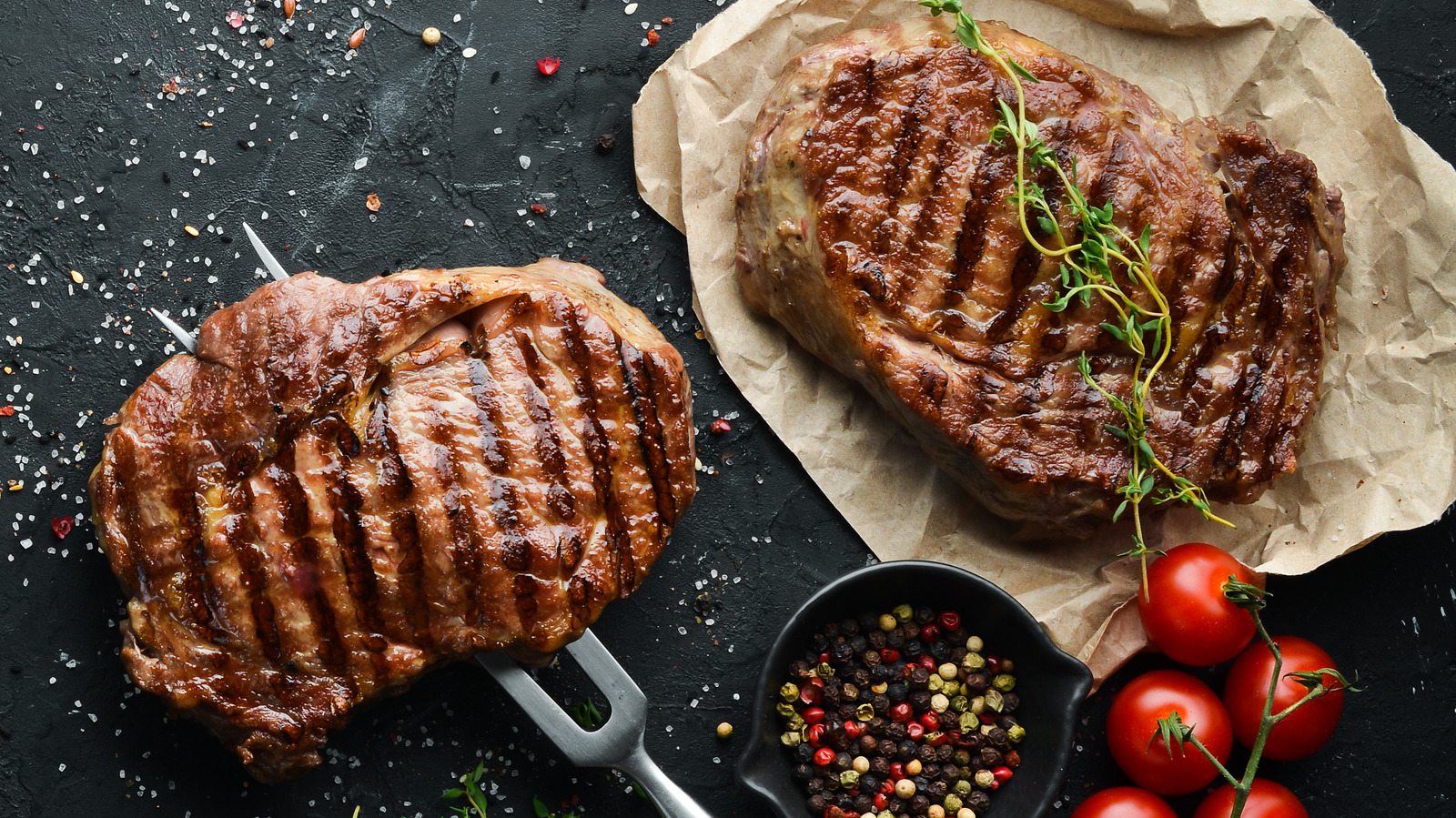
Filet Mignon Vs. Ribeye What's The Biggest Difference?
A filet mignon is usually around eight ounces in weight, while a ribeye steak might be around 10-12 ounces if boneless and somewhere around two pounds for a cowboy steak (bone-in thick-cut ribeye.) A filet mignon is the main part of a meal while a cowboy steak (pictured above) is a meal plus leftovers. Tenderness

Ribeye & Filet Mignon Prime Steak Gift Box Churchill's Steaks
For the flavor to fully emerge, ribeye steaks typically only need a small amount of salt and pepper. Appearance: Compared to ribeye steak, fillet mignon is round and considerably smaller. Ribeye steak is a little tougher than filet mignon cuts. Price: Although both cuts are expensive, fillet mignon is by far the priciest.
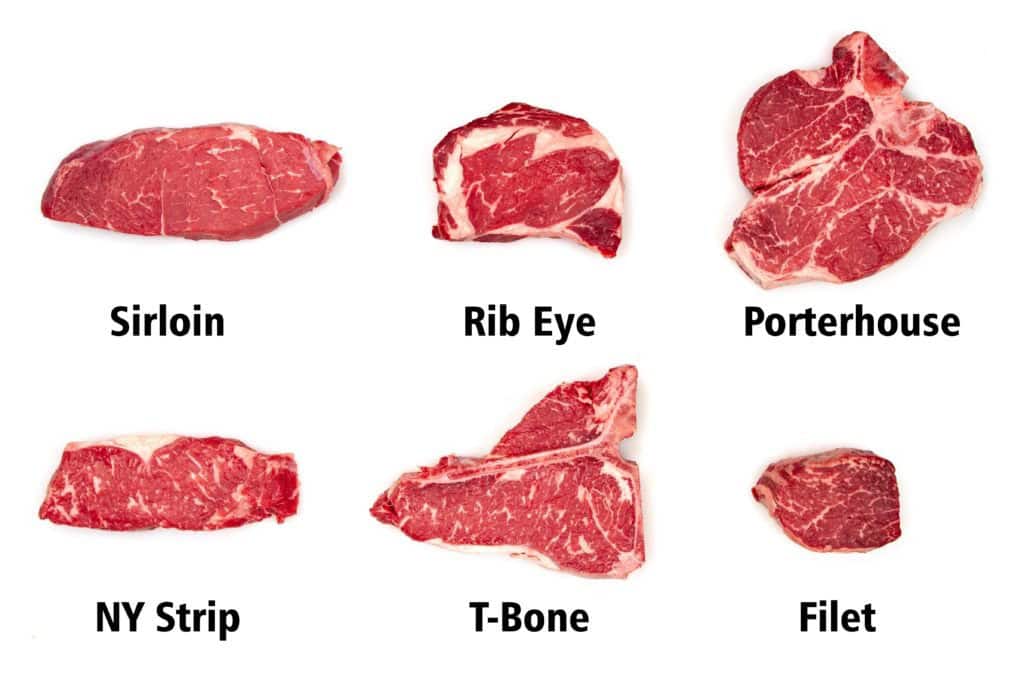
The ThermoWorks Guide to Steaks—Temps and Cuts
Seeing as it comes from a muscle that gets more work, ribeye is far more marbled than filet mignon — and that means a higher fat content. One hundred grams of raw filet mignon contains 7.1 grams of total fat, while 100 grams of raw ribeye contains 10.6 grams of fat. And these numbers refer to trimmed steaks.
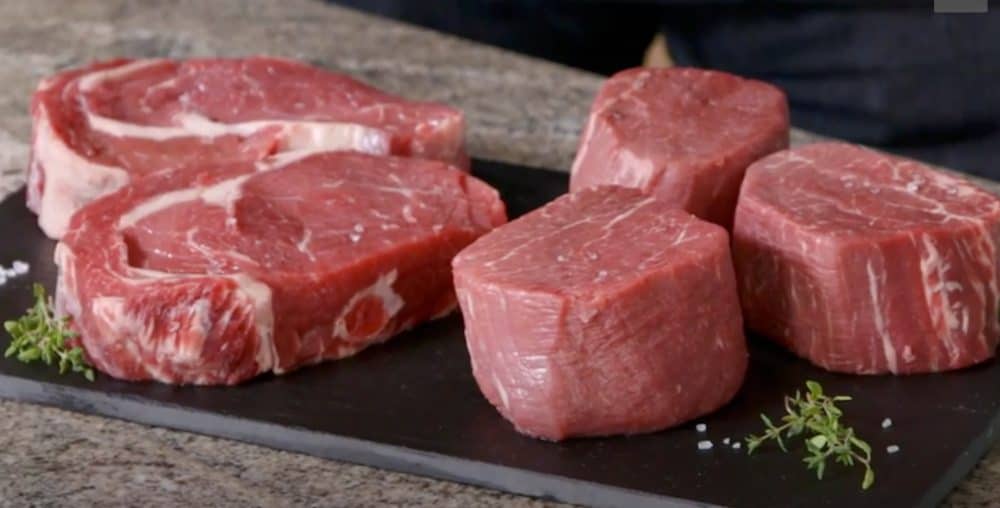
Filet Mignon vs. Ribeye The Steak Comparison Series Mad Backyard
This is why filet mignon is accompanied with a rich sauce or sauteed in butter to boost the steak's flavor. In contrast, ribeye steak contains more intramuscular fat, which gives the steak its succulent, beefy flavor. Ribeye steaks contain as much as 50 grams of fat, which makes them juicy and succulent.

The 25+ best Different steak cuts ideas on Pinterest Different cuts
Comparing Costs: Filet Mignon vs Ribeye Steak. Filet mignon is one of the most expensive cuts of steak because it's one of the most coveted. Die-hard fans of this cut are willing to pay top dollar to get the tenderness you can easily cut with a fork. Plus, the average animal only has about 17 to 18 ounces of the filet mignon on them - and.

Pin on Beef
Filet mignon and ribeye are two of the most popular types of steak cuts. There are some subtle differences between filet mignon and ribeye when it comes to taste, texture, and tenderness.

Red Wine Vinegar, Shallot, and Garlic Reduction Sauce for Steaks
Conversely, a ribeye is cut from the bottom half of the ribs and comes from the prime rib section. Another key difference is the size between the two cuts. Filet mignon servings are smaller, around two and a half inches in size. A ribeye tends to be more significant. It can range from 12 to 15 inches.

How to Buy the Perfect Ribeye Steak Different Cuts of Steak
While Filet Mignon is tender and less fatty, Ribeye is juicier and more flavorful due to its high fat content. The choice between the two depends on personal preference, with Filet Mignon being ideal for those preferring a leaner cut and Ribeye for those who enjoy a meaty, juicy steak. Filet Mignon Vs. Ribeye - an Overview.

25+ bästa Filet steak idéerna på Pinterest
Comparing Size, Weight, and Servings per Cut. Filet Mignon is typically smaller, about 2-3 inches in diameter, and weighing 6-8 ounces. This makes it an ideal portion for a single serving. Ribeye is a larger, heartier option, best cooked and served at a substantial thickness of 1.5 inches, and weighing 12-24 ounces.